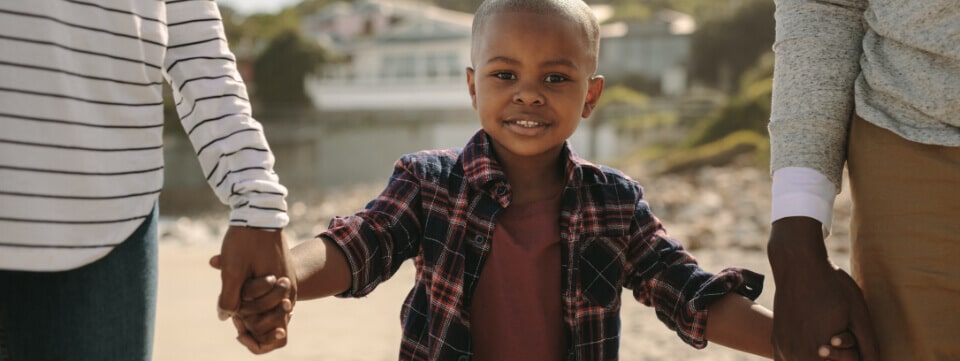A child custody case is one of the most stressful and emotional situations parents can go through, especially if they are unwilling to agree to the same terms. You need to keep a clear head so you can obtain an outcome that benefits your children.
If you’re in need of a skilled, compassionate, and highly experienced child custody attorney in North Carolina, call Breeden Law Office at (919) 661-4970 to schedule a consultation today.
Custody Matters in North Carolina
Determining custody of your children during a divorce can be a difficult task. You and your former partner are likely experiencing a myriad of emotions, and the thought of having to give up precious time with your children may seem unbearable.
It’s important to establish an agreement that outlines physical and legal custody for the two of you; that way, you can attempt to make the very best of a trying situation.
Attorney Jonathan Breeden has spent almost two decades helping people throughout Wake, Hartnett, and Johnston counties with their family law issues. Getting help from an attorney can allow you to draft a child custody agreement both you and your spouse find fair.
To speak with a custody lawyer about your case, call Breeden Law Office at (919) 661-4970.
What is Legal Custody?
This type of custody refers to the important decisions made regarding children, including health care, education, and welfare. Parents often share joint legal custody so that both the custodial and non-custodial parents make decisions about the well-being of children together. If there is a compelling reason that one parent should not make such decisions, the court may award sole legal custody to one parent.
Having legal custody of a child means you get a say in how the child is raised. You can voice your opinion about which doctor, school, or church they attend. Decisions about their sports choices or after-school activities can also be made with equal consent from both parents. Even if your child does not live with you full-time, you can work with the child’s other parent to ensure you’re both involved in your child’s life.
What is Physical Custody?
This type of custody refers to the actual location where children reside. When sole physical custody (sometimes referred to as “primary custody”) is awarded to one custodial parent, the other, non-custodial, parent is typically given visitation rights (sometimes referred to as “secondary custody”) unless the children would be harmed in doing so. Parents may also share joint physical custody if children spend equal time residing with both parents.
The child may live primarily with one parent or spend time at each parent’s home. One parent may have sole physical custody, where a child primarily resides with them the majority of the time. Or, both parents may have joint physical custody, where a child splits time between the parents evenly.
Joint Physical Custody
Having joint physical custody means both parents share their homes with their children. Generally, a child may spend one week with one parent and the next week with another parent, or parents may decide to divide up each week. Often, joint physical custody can get a little difficult for all parties involved, so parents may decide that primary and secondary custody is a better choice.
In this situation, the child lives with the primary, or custodial parent much of the time. The other parent often referred to as the non-custodial parent, sees the child for visitation on weekends, at certain holidays, and for a month or two during the summer.
While it can be difficult to consent to visitation when you’re used to seeing your child all the time, the decision should be made based on the child’s best interests.
Joint Legal Custody
Joint custody is not just for determining where the child will live. North Carolina does not give preferential treatment to one parent over another when considering custody issues, so many parents opt for joint legal custody, even if they decide to go another way with physical custody. Joint legal custody allows both parents to have an equal say in raising their child, even if they can’t both have an everyday physical presence in their child’s life.
Sole Custody
Sole legal and physical custody puts the onus of raising the child on one parent. The court will consider all custody arrangements after viewing factors such as:
- The child’s relationship with each parent
- Each parent’s living conditions
- Any history or sexual or physical abuse
- History of drug or alcohol abuse by either parent
- The child’s overall safety in each home
While it’s not very common for one parent to seek sole custody, it could be a good option if your child’s other parent is an alcoholic or drug abuser, or you’re worried they will not be able to keep your child safe. Even in a sole custody case, the other parent may get visitation rights, but they may be only for a few hours instead of overnight.
Custody Issues & Disputes
Some parents ask for sole physical custody because they are concerned that the other parent won’t provide a suitable environment, like if alcohol and drug use issues. Since this type of situation will put the children in a dangerous situation, courts often grant primary physical custody to one parent, but award visitation with the non-custodial parent to ensure both are actively involved in their lives.
If children are threatened by a parent’s substance abuse or mental health issues, a court will make a decision based on keeping them safe.
Although joint physical custody is possible, courts sometimes avoid it in order to maintain consistency of residency to avoid disruption of school and other activities. When awarding custody, judges in North Carolina often consider evidence of substance abuse, mental health issues, and issues of anger management as well as what the status quo of custody has been prior to the case coming to hearing before a judge.
For example, a judge in custody and visitation disputes will consider all of the following when making decisions:
- History of domestic violence
- Drug and alcohol abuse
- The ages and developmental levels of the children
- The financial situations of both parents
- The environment of both parents’ homes
- The wishes of the children, if they have the mental capacity to understand the significance of the decision
A North Carolina Custody Attorney Can Help
Parents can often get together and mutually agree upon a visitation schedule to follow, or decide together to modify their previous agreements. However, sometimes the parents cannot get along, or circumstances in their relationship with each other or the child have changed, and they can no longer communicate civilly. In these situations, it’s a good idea to speak to a child custody lawyer.
Attorney Jonathan Breeden can go over your situation and help you determine the best outcome. In cases where your situations have altered so much that you think the court order must be changed, Breeden Law Office can represent you in court and work with the judge to get the changes you seek.


